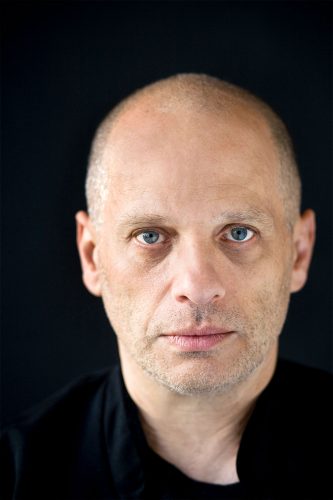
“It was terribly cold and nearly dark on the last evening of the old year, and the snow was falling fast.”
So begins H.C. Andersen’s “The Little Match Girl,” whose poignant tale of childhood poverty is increasingly relevant amid 21st-century America’s rising homelessness and inequality.
California-born New York composer David Lang, co-founder of New York’s groundbreaking Bang on a Can collective, gave his choral work Little Match Girl Passion a suitably stark, bleak musical setting that won him the 2008 Pulitzer Prize for music.
On Dec. 29 at First Christian Church, Eugene Opera transforms the work into an opera. It’s an inspired choice, a needed opportunity for musical catharsis as we move into a New Year that, like the story, offers the promise of hope amid despair.
“A poor young girl, whose father beats her, tries unsuccessfully to sell matches on the street, is ignored, and freezes to death. The girl’s bitter present is locked together with the sweetness of her past memories,” Lang wrote. “Andersen tells this story as a kind of parable, drawing a religious and moral equivalency between the suffering of the poor girl and the suffering of Jesus. The girl suffers, is scorned by the crowd, dies, and is transfigured.”
Lang set the story to music the same way J.S. Bach set his celebrated St. John and St. Matthew Passions: interpolating into the narrative choruses that reflect the response to and commentary on it by the crowd — which includes the audience.
“Bach broke down the wall between the audience and the performers by making them the crowd in the chorales,” Lang told a Portland State University class during a 2011 visit.
A fairly religious Jew himself, Lang said he loathed the anti-Semitism of some of the St. John texts (which the Oregon Bach Festival has confronted in past performances) and saw his Little Match Girl as a solution to the problem the St. John Passion posed. Instead of blaming the Jews, Lang’s passion focuses on the responsibility of our entire society for the suffering of poor and homeless people.
Though recognizably minimalist at its source, his Passion’s hushed medieval choral texture seems worlds away from Lang’s brash earlier works, yet modernist disquiet lurks beneath its surface simplicity. Bristling with dissonant harmonies, tricky rhythms, overlapping vocalisms and other challenges, the spare Passion, like a lot of Lang’s recent music, leaves a lot of space (via rests), in an almost confrontational way, as if to see how little material he can use and still communicate.
He’s also composed a “whisper opera” and a piece that consists of a single falling chord for 40 minutes.
His spacious technique places the emphasis squarely on the words and Andersen’s heartbreaking story. I’ve seen it performed to great effect by choirs in concert halls, churches and next to a gathering place for homeless Portlanders on the west bank of the Willamette River.
But I also saw it staged as a short opera last year by Portland Opera, and whatever is lost from the original’s sole stark focus on the words was more than compensated by the added dramatic movement and imagery. It made the story seem even more real than Lang’s abstract sounds alone could convey. That marriage of music, imagery, story and sound is something opera at its best can do better than any art form.
Making this performance even grittier is Eugene Opera’s commendable decision to collect, at the performance, cash donations and personal hygiene items and toiletries for the Interfaith Family Shelter run by St. Vincent de Paul.
The show also features professional actors performing monologues written by at-risk homeless young Eugeneans as part of a writing project. The company typically rings in the New Year with a gleeful gala featuring some frivolous classic opera or operetta, the better to relieve our midwinter gloom. (You can find some of that at the company’s New Year’s Eve show at The Shedd, featuring opera soloists will performing Brahms’ Liebeslieder Waltzes and Act III of La Bohème with four-hand piano.)
But at a moment when our region, our nation and our world confront critical choices, we shouldn’t turn away from severe challenges we can still change. Maybe the events of next November will give us more cause to celebrate. Until then, Eugene Opera is providing us with a musical and theatrical place to find moments of austere beauty amid harsh reality, and maybe inspiration to change it.
That’s a New Year’s resolution we can all adopt.